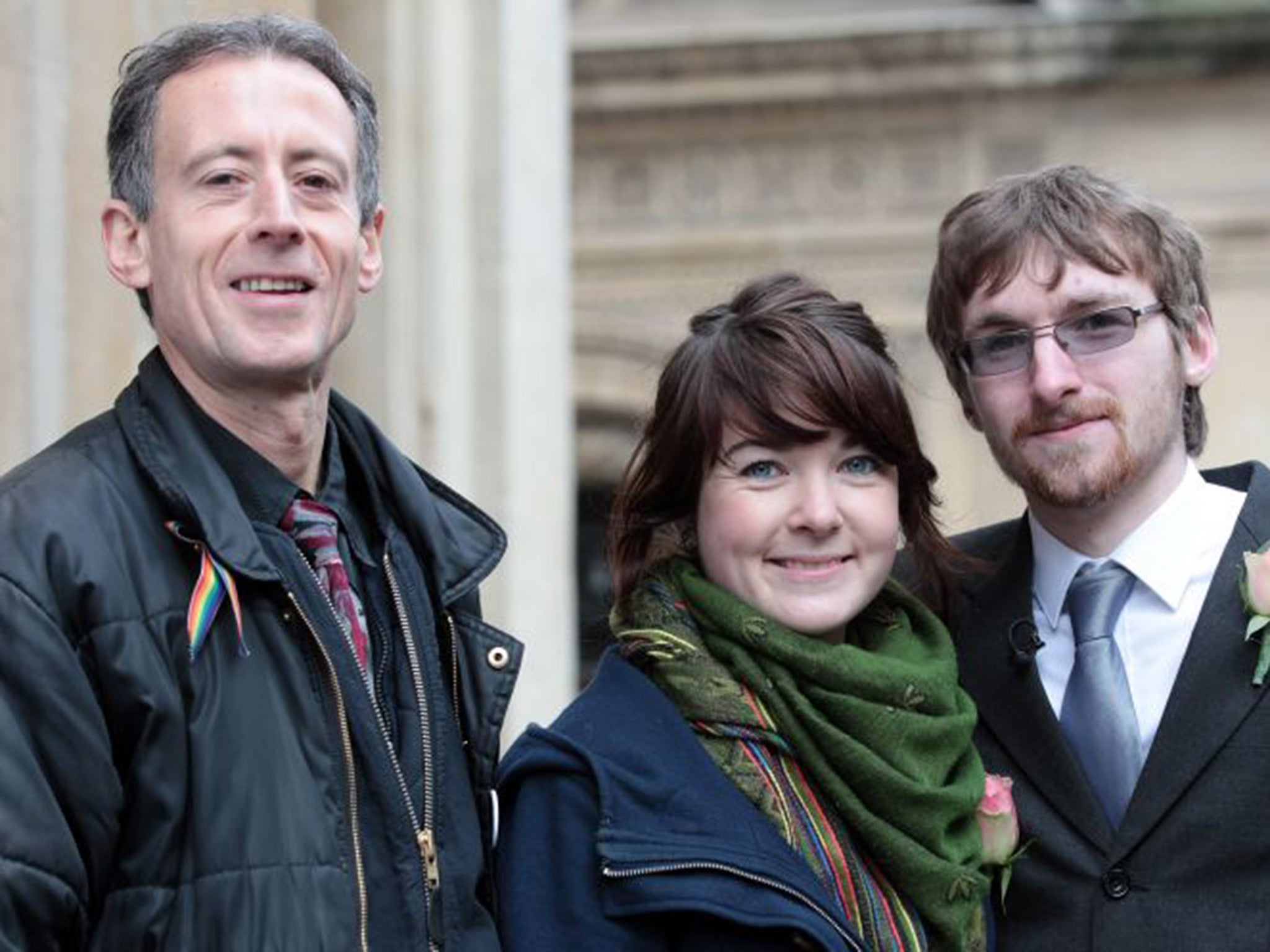Civil partnerships: Marriage rights have created an inequality
We’ve got marriage equality - now it’s time for civil partnership equality too


Your support helps us to tell the story
From reproductive rights to climate change to Big Tech, The Independent is on the ground when the story is developing. Whether it's investigating the financials of Elon Musk's pro-Trump PAC or producing our latest documentary, 'The A Word', which shines a light on the American women fighting for reproductive rights, we know how important it is to parse out the facts from the messaging.
At such a critical moment in US history, we need reporters on the ground. Your donation allows us to keep sending journalists to speak to both sides of the story.
The Independent is trusted by Americans across the entire political spectrum. And unlike many other quality news outlets, we choose not to lock Americans out of our reporting and analysis with paywalls. We believe quality journalism should be available to everyone, paid for by those who can afford it.
Your support makes all the difference.Civil partnerships were an important, valued advance. From 2005, for the first time in the UK, same-sex couples were able to secure legal recognition and rights. Previously, their relationships did not exist in the eyes of the law. This meant that lesbian and gay partners were not legally recognised as next-of-kin, which often caused huge distress and disadvantage in the event of one of them being hospitalised or dying.
Despite their benefits, civil partnerships were not equality. They enshrined (and still enshrine) pension inheritance discrimination. In the event of a civil partner dying, the surviving partner does not have the same right as a married heterosexual person to inherit their deceased partner’s full pension. This can leave them much worse off financially.
Moreover, civil partnerships were, in part, introduced to avoid having to concede the demand for same-sex marriage. They created a segregated, mutually exclusive two-tier system of relationship law: marriages for opposite-sex couples only, and civil partnerships for same-sex couples only.
With the advent of civil marriage equality, this discrimination has been both alleviated and reinforced. Same-sex couples can now marry but opposite-sex couples remain banned from civil partnerships.
This gives lesbians, gays and bisexuals a legal advantage over heterosexual couples. That’s neither fair nor right. In a democratic society, we should all be equal before the law.
Despite calls to scrap civil partnerships, it is important they continue. Some straight and gay couples prefer them. They don’t like the sexist, patriarchal history of marriage and the language of husband and wife. Civil partnerships are more modern and egalitarian, without the negative traditions and connotations of matrimony.
In the Government’s 2012 public consultation, two-thirds of respondents wanted them retained – and opened up to opposite-sex couples. In a 2014 follow-up, 63 per cent of unmarried heterosexuals said they would choose marriage and 20 per cent indicated they would prefer a civil partnership, if it were available. We’ve got marriage equality. Now it’s time for civil partnership equality too.
Join our commenting forum
Join thought-provoking conversations, follow other Independent readers and see their replies
Comments